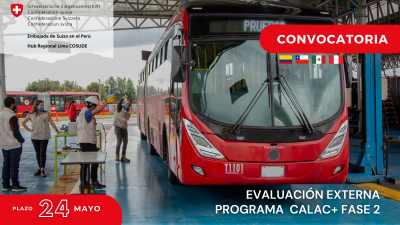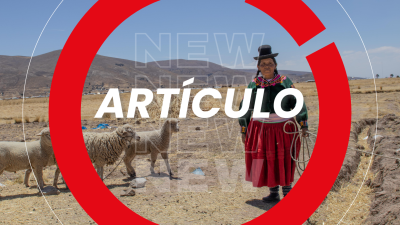The Andean forests are one of the most extensive tropical Andean ecosystems, and also play a key role in the provision of environmental goods and services: they regulate the climate, mitigate greenhouse gas emissions (GGE) and keep the habitats that make if possible for the biodiversity to remain in the long term. A total of 83 percent of the community of Antioquia depend on them.
Columbia continues to innovate to tackle climate change. Last 27 April, the Symposium Forests for the Future: current status and challenges for the conservation of the Andean forests” was held in Antioquia, with the aim of presenting the public with the environmental problems of the Andean Forests of Antioquia and to contribute to Columbia’s goals to address climate change in the framework of the Paris Agreement. The event was attended by over 300 people and revealed the great opportunities of the Andean forests.
The event was opened by Diana Arango, the director of the Medellin Botanical Gardens; Eugenio Prieto, director of the Valle de Aburrá Metropolitan Area; Jaime Andrés García, director of MASBOSQUES, Albert Bokkestijn, director of the Bosques Andinos Programme, who all highlighted the importance of the inter-institutional collaboration they are now practicing for the conservation of the Andean forests.
Albert Bokkestijn started the presentations with a talk on the importance of including Andean forests on climate change and sustainable development agendas and he presented a general approach to the current status of these ecosystems from an academic point of view.
This was followed by Ricardo Callejas from Antioquia University and Álvaro Duque from Columbia National University who discussed how climate change was affecting the Andean forest of Antioquia.
Darío Guerrero of the Ministry of Environment and Sustainable Development made a presentation of government strategies that are making a contribution to Andean forest conservation. Along the same lines, Carolina Sanín from Parque Explora, an initiative that aims to bring together science and conservation for the general public, made a presentation on the active role the public can take for biodiversity conservation.
Subsequently, Ana María Benavides, scientific director of the Medellin Botanical Gardens and Sebastián González, researcher at the Antioquia Andean Forest Observatory, presented the Observatory as a strategy for the management and circulation of scientific information about Andean forests.
The Antioquia environmental authorities (Cora Corantioquia, Cornare, the Valle de Aburrá Metropolitan Area and the Envigado Rural Development and Environment Secretariat) presented the conservation strategies they have been using in their various jurisdictions which could also join the forces and reforms promoted by the Ministry of Environment and Sustainable Development in Columbia to tackle the problems of climate change.
The role of private companies in the conservation of the Andean forestsThe event was also attended by representatives of the private sector, who highlighted the opportunities for the conservation of the Andean forests that can be promoted via the green tax in Columbia, and they stressed the increasingly visible commitment companies have with sustainable development. The public companies of Medellin and Fundación Argos presented their conservation projects.
Finally, Lorena Duque presented the Columbian Network of Natural Reserves of Civil Society, a project that aims to unite the public for the conservation of the ecosystems.
Find and download the presentations below:
- Por qué nos interesan los Bosques Andinos – Albert Bokkestijn (Andean Forests Programme)
- Qué son y dónde están los bosques andinos – Ricardo Callejas (Antioquia University)
- Estrategias gubernamentales para la conservación – Rubén Darío Guerrero (MADS)
- Movilización ciudadana por la conservación – Carolina Sanín (Parque Explora)
- Observatorio de Bosques Andinos de Antioquía
- Especies en peligro de extinción en Antioquia – Cristina López (Antioquia University)
- Pacto por los Bosques
- Estrategias de conservación de Cornare
- Estrategias de conservación del Área Metropolitana del Valle de Aburrá
- Estrategias de conservación de Corantioquia
- Municipio de Envigado y la conservación
- Empresas Públicas de Medellín apostando por la conservación
- Fundación Argos y la conservación
- Reservas Nacionales de la Sociedad Civil
Bosques Andinos is part of the Global Programme on Climate Change and the Environment (GPCCE) of the Swiss Agency for Development and Cooperation (SDC), and is facilitated by the Helvetas Swiss Intercooperation consortium (Condesan). It is working in Antioquia (Columbia) thanks to the alliance between the Valle de Aburrá Metropolitan Area, the Medellin Botanical Gardens and the Masbosques Corporation.
The gallery of photos is on this link.
Source: Andean Forests
For further information:Andean Forests Project, Project fiche, Swiss Embassy/Swiss Agency for Development and Cooperation (SDC)
Web Andean Forests Programme Video Andean Forests Programme








